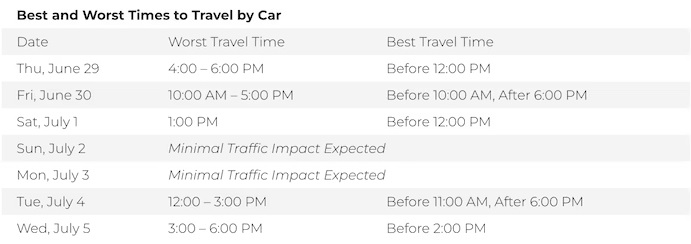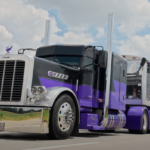A significant message for truckers: The upcoming Fourth of July period is anticipated to witness an unprecedented number of motorists on the roads. According to AAA, a staggering 50.7 million Americans are projected to embark on journeys of 50 miles or more from their homes during this Independence Day weekend. This sets a new record for the holiday, with the majority of travelers opting for car travel. In comparison to 2022, domestic travel during this extended weekend is expected to increase by 2.1 million individuals. This year’s projection surpasses the previous record set in 2019, where 49 million travelers ventured out during the July 4th weekend.
The upcoming July 4th weekend is poised to establish a new milestone in terms of Americans traveling by car during the holiday. AAA forecasts that a remarkable 43.2 million individuals will choose to drive to their destinations, indicating a 2.4% increase compared to 2022 and a notable 4% rise from 2019.
AAA has defined the Independence Day holiday travel period as the five-day stretch from Friday, June 30 to Tuesday, July 4 for the purpose of this forecast.
“We’ve never projected travel numbers this high for Independence Day weekend,” said Paula Twidale, Senior Vice President of AAA Travel. “What this tells us is that despite inventory being limited and some prices 50% higher, consumers are not cutting back on travel this summer. Many of them heeded our advice and booked early, another sign of strong travel demand.”
This summer, there has been a significant decrease in gas prices compared to the same period last year. On July 4th, 2022, the national average for a gallon of regular gasoline was $4.80. However, in recent months, gas prices have remained relatively stable, with the national average ranging between $3.50 and $3.60 per gallon. This decline in prices can be attributed to the lower cost of oil.
According to INRIX, a transportation data and insights provider, Friday, June 30 is expected to be the busiest day on the roads during the Independence Day holiday weekend. Average travel times are anticipated to be nearly 30% higher than usual. Major metropolitan areas such as Boston, Seattle, and Washington, DC are predicted to experience the worst traffic congestion. To avoid the heaviest holiday congestion, INRIX recommends leaving in the morning or after 6 p.m.
“With record-breaking travelers expected on the road this holiday weekend, drivers should prepare for above-average delays to their favorite destinations,” said Bob Pishue, transportation analyst at INRIX. “Using traffic apps, local DOT notifications, and 511 services are key to minimizing holiday travel traffic frustrations this Independence Day.”






